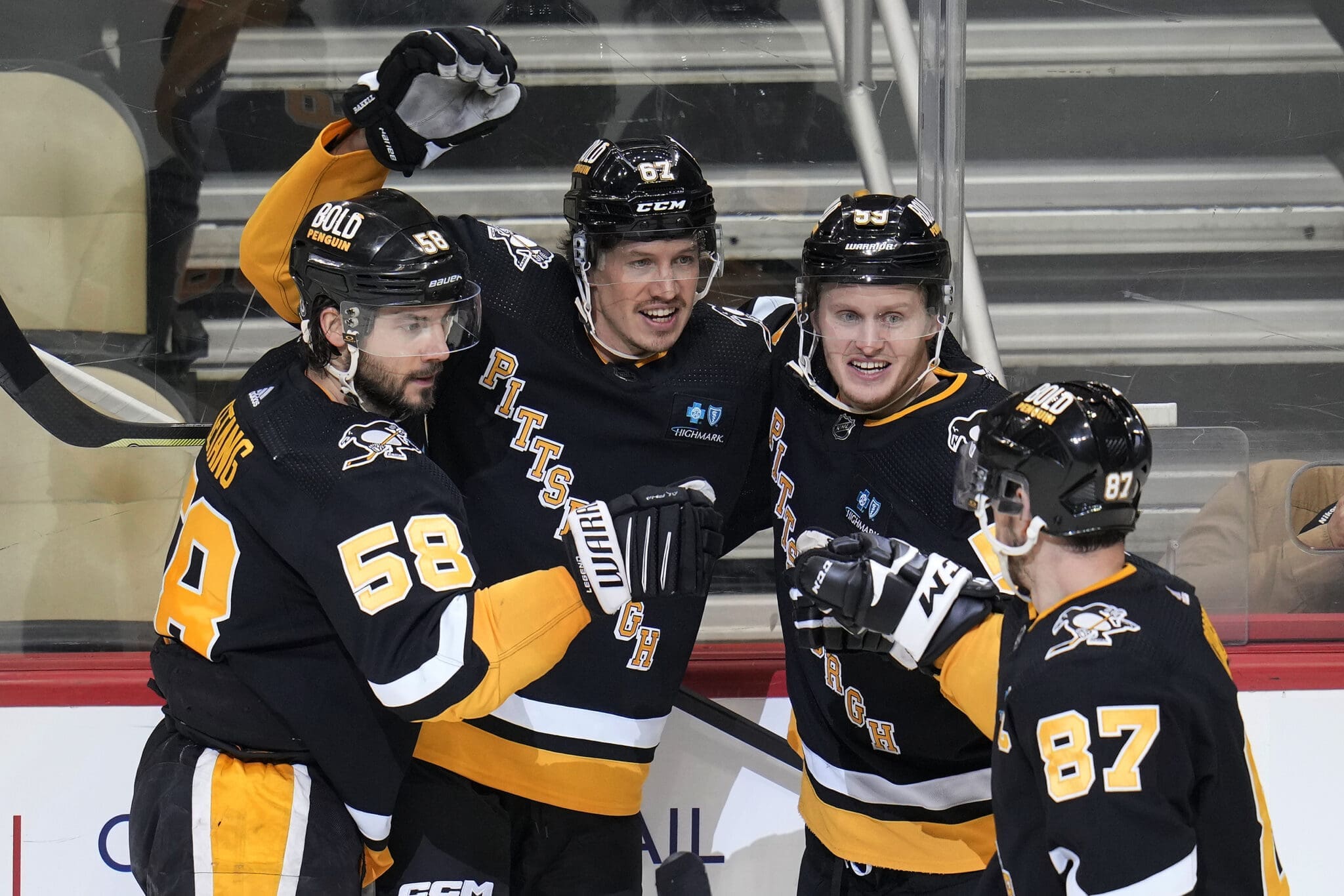Opinion
Kingerski: Why the Penguins Aren’t Rebuilding (and Probably Won’t)

Against incessant cries to obliterate the roster in a hailstorm and flurry of Pittsburgh Penguins trades, the team’s last two general managers have not instigated a demolition of the Penguins roster in exchange for prospects, draft picks, and the hope of future sunshine in exchange for pain today.
Facts are facts, but they don’t necessarily lead to one conclusion.
The Penguins’ core is over 35.
The Penguins haven’t won a playoff series since 2018.
The Penguins haven’t won a Stanley Cup since 2017.
Can you believe neither former GM Ron Hextall nor the current president of hockey operations/GM Kyle Dubas bulldozed the team on their first day? In full fairness, the Penguins’ chance to move on without the core three was the 2022 offseason. Instead, poorly constructed contracts for Kris Letang and Evgeni Malkin essentially poured concrete on the Penguins’ current path.
A retool is possible. A rebuild is unlikely.
There are much bigger and legitimate reasons that the Penguins haven’t acquiesced to the loud contingent of the paying public who want to see their former heroes get tribute videos and spend the last years of their career as a rental in a foreign sweater rather than black and gold.
Look at the big picture. The Fenway Sports Group purchased the Pittsburgh Penguins for 90% of a billion dollars.
There is a harsh reality to a hardcore rebuild that comes with significant financial and personal disincentives.
If only all of the fans who demand a rebuild would buy season tickets, the team might be less reticent to liquidate their talent. But that’s not how it works. Look at the precipitous attendance and revenue freefalls that always accompany the down times. Attendance will drop from 18,000 to 12,000, and that’s not just tickets sold; concessions, parking, merchandise, TV ratings, and every other money-generating aspect of the business takes a tumble.
FSG didn’t invest $900 million to make the Twitterverse happy.
The Penguins may have less than a 5% chance to win the 2024 Stanley Cup, but they still have a chance. There’s playoff revenue to be had, there’s great moments to enjoy, and there’s the chase.
The chase is powerful. Intoxicating. It’s the reason for the job and the game’s existence.
To competitive people, surrender is a fate only slightly better than death.
Don’t gloss over the reality of rebuilding. The Penguins hit the Powerball jackpot with four straight top-three picks from 2003-2006 who will be Hall of Famers (or, in Jordan Staal’s case, a permanent lineup pillar).
Think of the number of top picks the Edmonton Oilers stockpiled for a decade and how far away they are from the Stanley Cup nine years into Connor McDavid’s career. Oilers GM Ken Holland is a Hall of Fame GM, so it’s not as if the Oilers are led by a clown car of failed leaders.
The Toronto Maple Leafs are stocked with top draft talent, yet it was a cause for a party when they made it to Round Two in 2023.
Buffalo, Ottawa, and Detroit provide examples of rebuilds that take a long time, and all of them are in the midst of lengthy playoff droughts.
So, understand the limitations and context of the situation. When Hextall signed Letang and Malkin instead of reinvesting the capital into players in their later 20s on the free-agent market, there was no going back.
The best Dubas can do is retool on the fly over the final years of Sidney Crosby’s career. If Malkin and Letang decide they want to stick with it and try to help the Penguins into the next phase, they have the final say.
So why keep living in the rearview mirror?
Letang is playing some of his best hockey ever. Age and maturity suit him well. That will have to suffice in lieu of a late first-round pick.
In Malkin’s case, there probably isn’t much of a trade market because of his 35+ contract with two more years after this (why Hextall structured the deals with full no-movement clauses AND a 35+ designation remains bewildering but no longer worth discussing beyond a recognition).
The Penguins might get to rock bottom with or without trying. But they might also avoid it. Being stuck in the middle isn’t necessarily a death sentence. Stanley Cups can be won without having the best player in the game.
Just because a team stinks doesn’t mean success is imminent, and raging against the dying of the light doesn’t guarantee terminal failure.
This is real life, not Xbox. The human and financial costs, which don’t exist in the video game world, are the very reasons Dubas can’t hit the reset button now and probably won’t.












